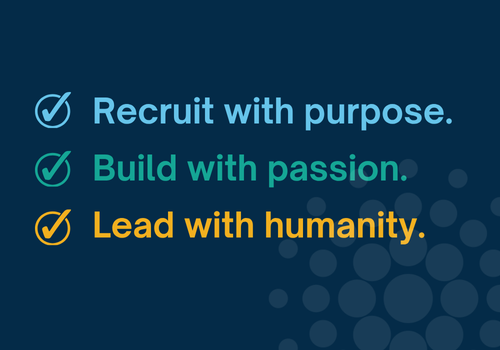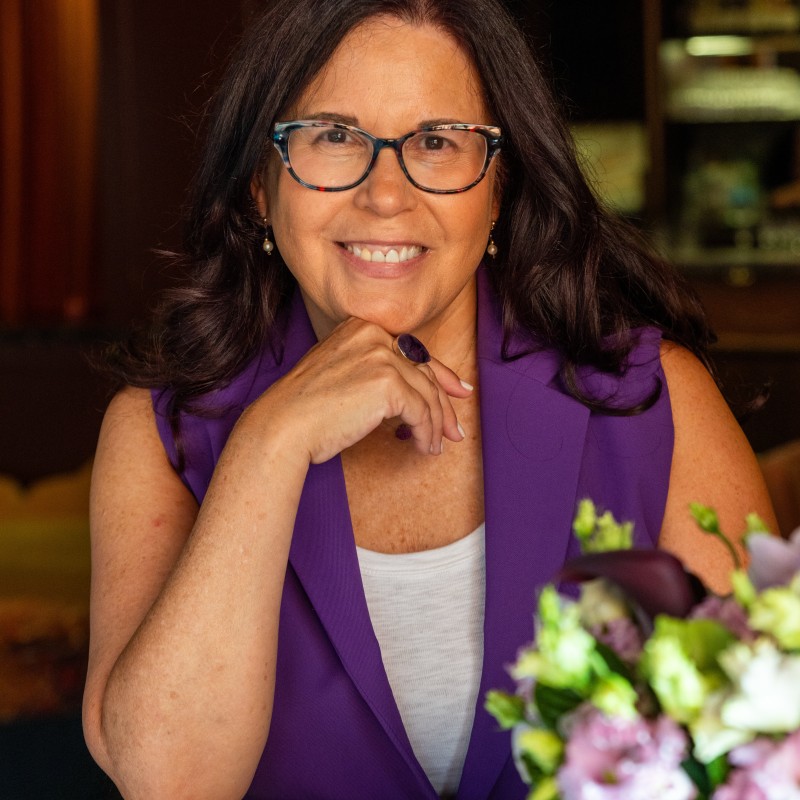The following piece is the first in a three-part series co-authored by David Mansbach, Managing Partner of DHR Global’s Hospitality & Leisure Practice, and Leora Halpern Lanz, Associate Professor at Boston University’s School of Hospitality Administration. Together, they examine the hospitality industry’s ongoing talent shortage and offer strategic insights to help organizations reframe how they recruit, develop, and retain talent—especially in an environment where service, and the people who deliver it, remain essential to success.
With a professional partnership spanning 25 years, Mansbach and Lanz bring a unique blend of industry and academic insight to the conversation. They argue that now is the time for hospitality leaders to reimagine leadership development and workforce sustainability, grounded in a renewed appreciation for talent.
Reimagining Hospitality Talent: Purpose, Passion, and the Next Generation
By: David Mansbach and Leora Halpern Lanz
The hospitality industry is facing a pivotal moment. As seasoned leaders retire and leadership pipelines run dry, organizations are scrambling to fill roles rather than strategically cultivating talent. At the same time, a new generation of professionals—driven by purpose, global awareness, and emotional intelligence—is entering the workforce with fresh expectations.
These young professionals are not just looking for jobs; they’re seeking careers that matter. This disconnect between industry practices and emerging talent values has created a widening gap. To close it, hospitality leaders must rethink how they attract and retain team members—starting with a renewed commitment to purpose, mentorship, and long-term growth. This is not just a staffing issue. It’s a strategic imperative.
While this article primarily focuses on the next generation of hospitality talent, it’s important to note that the leadership gap at the executive level is equally pressing.
Stay tuned for the second article in the series, where we will dive into the talent implications at the top.
A Talent Crisis in Hospitality
Across the globe, talent is scarce. That’s not new. What is new is the accelerating pressure and reactive approach that now shapes hiring decisions at every level—from early-career roles to the executive suite. Without a long-term talent strategy, even the strongest brands risk instability.
From the talent search and advisory side, executive search professionals are receiving an influx of urgent calls from hospitality companies. Executives are retiring, leadership pipelines are empty, and company cultures are starting to fray. As a result, searches for key roles are rushed, and companies are settling instead of securing top-tier talent.
Today, a more strategic approach to talent acquisition is crucial for developing the robust leadership pipelines needed for the future.
At the university level, there are students with global perspectives, high emotional intelligence, cultural fluency, and a genuine desire to serve. These are the future leaders who could redefine what hospitality means, but too many are leaving the industry before they’ve even begun. Many are leaving because early career opportunities don’t always offer the growth, flexibility, or impact they’re seeking.
Today, a more strategic approach to talent acquisition is crucial for developing the robust leadership pipelines needed for the future. The hospitality industry has a unique opportunity to redefine purpose-driven careers that engage the next generation of talent. This goes beyond simply filling jobs. It’s about redefining how companies attract, develop, and retain the people who make the industry run. Across all segments, organizations are scrambling, not strategizing—overlooking the very people who chose this industry with intention.
Reshaping the Industry for Sustainable Talent
Let’s rewind to 1993, when milk was in a tailspin. It wasn’t flashy or exciting, nor was it competing with Gatorade or Mountain Dew. Jeff Manning, executive director of the California Milk Processor Board, understood the dilemma: milk had an image problem. So, he launched one of the most iconic campaigns of our time: “Got Milk?”
Today, hospitality faces a similar challenge.
The incoming generation of hospitality leaders doesn’t want to wait for the perks of loyalty. Students across hospitality programs consistently express a desire for continuous learning beyond college. They are seeking employers that offer structured mentorship, provide ongoing professional development, and empower new associates to make a meaningful impact, now.
While other industries offer flexibility, robust benefits, and visible career ladders, hospitality often asks young professionals to prove themselves in outdated ways. Industry observers note that this focus on labor efficiency over meaningful connection has contributed to the loss of emerging talent who could have become the next generation of great leaders.
Could offering a flex day attract talent that wants to contribute to company culture but can’t afford to live in or commute to work locations every day? Many young professionals highlight the benefits of a hybrid approach, as they recognize that in-person work allows them to learn more on the job and gain social connections that strengthen their skill set. A more flexible approach doesn’t have to be all or nothing.

This is hospitality’s “Got Milk?” moment. The industry must rewrite its narrative—one that shows a career in hospitality is meaningful, global, and rewarding. One that presents a fulfilling and enriching long-term career, with a myriad of ways to remain an active part of the global landscape.
This renewed vision for hospitality could be summed up as: “Hospitality: Where Heart and Mind Build Every Kind of Career.”
The Strategic Asset: Attracting & Retaining Hospitality Graduates
Students in hospitality programs intentionally choose people-first careers. They understand the value of service, have developed cultural agility, and are learning to deliver experiences that matter.
Their training extends far beyond hotels and restaurants. From consumer-facing brands to wellness, sustainability, tourism, retail, and experience design and curation roles, they are equipped to succeed across any industry where people—and profit—matter. They will become a differentiator for any business willing to invest in them.
At the same time, organizations are leaner, meaning early-career professionals are asked to step up faster, often without the mentorship or visibility needed to succeed long-term. It’s common to see promising assistant sales managers responsible for entire markets, or junior asset managers overseeing large portfolios without proper development. The C-suite remains a closed circle—and predominantly male.
If the goal is to build brand equity, then human capital must be recognized as brand equity. The hospitality industry’s greatest asset is its people.
The hospitality industry has always been people-centric, yet in practice, talent is often treated as a commodity, and the “human” part of the business can be overlooked in valuation, strategy, and culture.
Hospitality graduates are the future stewards of companies and brands. They bring emotional intelligence and are trained in service design and cross-cultural connection. Their education strengthens both hard business skills and strategic thinking. If the goal is to build brand equity, then human capital must be recognized as brand equity. The hospitality industry’s greatest asset is its people.
It’s time to shift the narrative toward “high-impact, human-centered careers.” The industry must demonstrate that it values not just labor, but leadership and emotional intelligence.
The Long Game Approach to Talent: Start Earlier, Think Bigger
This isn’t about quick fixes. It’s about reimagining how to build talent pipelines starting in high schools, long before job seekers are searching on job boards.
Hospitality organizations must:
- Partner early with global hospitality schools and engage high school programs to introduce students to meaningful career paths.
- Design flexible roles that acknowledge modern values: work-life balance, well-being, and purpose.
- Invest in mentorship and growth pathways through structured, in-house development programs, and engage with campuses for one-on-one opportunities that are mutually worthwhile.
- Offer internships that matter—experiences with real exposure, structure, and opportunities to learn various aspects of the business.

This generation is smart, mobile, and mission-driven. Without meeting them where they are, organizations risk losing them. And when that happens, the future of hospitality is at stake.
It’s time to recognize hospitality graduates not as backup options, but as blueprints for long-term success. When companies ignore this, the result is reactive hiring, broken cultures, and leadership burnout. When done right, passionate young professionals with global acumen step into meaningful roles, shaping the future of the industry.
Recruit with purpose.
Build with passion.
Lead with humanity.
Human capital is the ultimate competitive advantage, and hospitality companies that embrace this mindset will thrive.
Meet the Authors
David Mansbach is Managing Partner, Global Hospitality & Leisure at DHR Global, a leading provider of professional services including executive search, leadership consulting, and emerging leader search solutions. David brings three decades of experience in executive search, compensation consulting, and strategic advisory services for the hospitality, restaurant, and franchise industries. Recognized as a trusted partner to private equity firms, family offices, and owner-operators, David has built deep relationships with senior decision-makers and industry leaders across these sectors.

Leora Halpern Lanz, ISHC, is an Associate Professor of the Practice, and former Assistant Dean and Graduate Chair, at Boston University’s School of Hospitality Administration. With decades of experience as a hospitality communications strategist and educator, Leora is a passionate advocate for preparing the next generation of hospitality leaders. Her debut book, “Developing Your Marketing Mindset: Real-World Lessons from Hospitality,” empowers leaders to embrace hospitality while championing community engagement, well-being, and sustainability—creating authentic, personalized, and purpose-driven connections.

Leaders Who Will Reshape the Industry
DHR Global’s Hospitality & Leisure Practice, led by Managing Partner David Mansbach, specializes in helping organizations identify senior leaders who can drive transformation and long-term success. Whether you’re navigating executive transitions or developing a future-ready leadership team, DHR delivers fresh thinking and unmatched access to talent. Learn more here or contact David to discuss your talent strategy.
